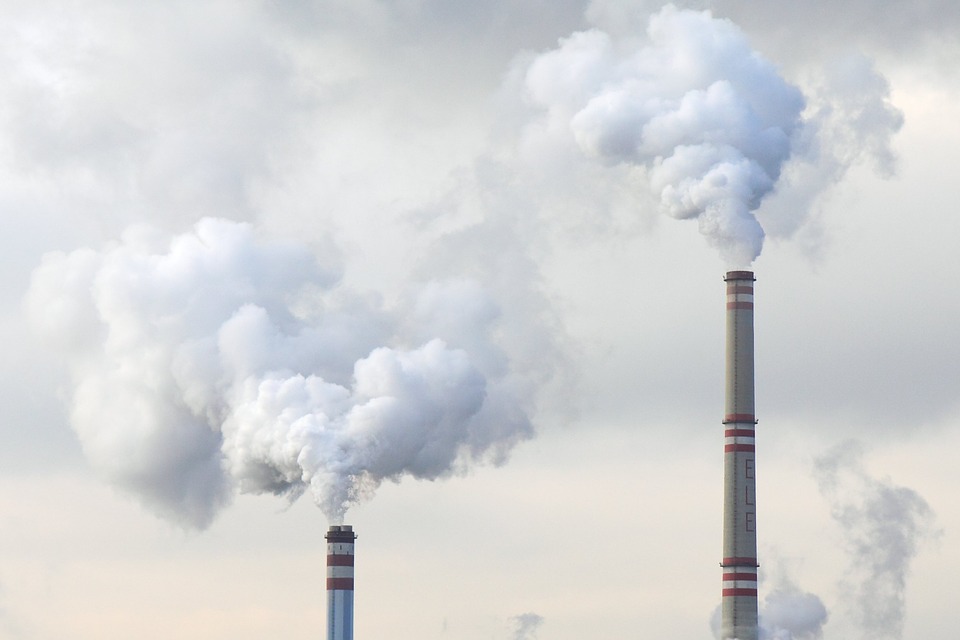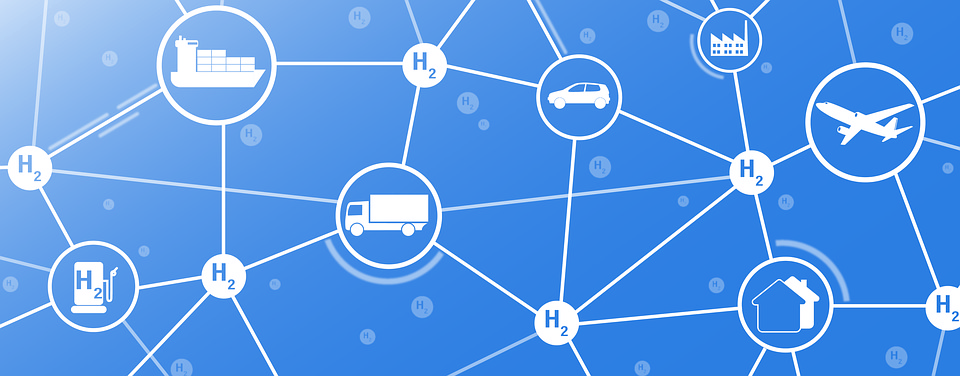Hydrogen Technology
By Amy Jenkins, Mechanical Engineer
The decarbonisation of the UK gas network through the use of hydrogen as an alternative to natural gas, is one part of the UK’s strategy for achieving its net zero carbon target by 2050. The UK government plans to achieve a full transition to 100% hydrogen by 2050. From 2025 no new homes will be able to connect to the gas network and by the mid 2030’s gas boilers are to be phased out completely, with all new installations to be low-carbon or connected to appliances that can be converted to clean fuel.

Source: Pixabay
Hydrogen is a good alternative to fossil fuel as it burns without greenhouse gas emissions, and it can also be used in fuel cells to generate electricity without greenhouse gas emissions with water being the only byproduct. In addition, hydrogen can act as a long duration, transportable medium for storing renewable energy.
A pilot study at Keele University (known as HyDeploy and led by Cadent), blends 20% Hydrogen into the existing private gas network. The network serves 101 residential houses, 8 student halls, 17 office blocks and service facilities. The aim of the study is to help determine the level of hydrogen which can be safely blended into the network without any changes to existing domestic appliances.
It is estimated a 20% Hydrogen blend in the gas network across the UK, it would equate to an annual carbon dioxide saving of around 6 million tonnes. That’s equivalent to taking 2.5 million cars off the road.
The Keele University trial, which started in Autumn 2019 and completed in Spring 2021, is thought to have been a success. Canteen staff reported no changes to their cooking regime and the HSE are satisfied that a 20% blend of gas will be as safe as the gas we currently use.
With the Keele University trial completed and successful, the HyDeploy project moves onto phase 2. The community of Winlaton in the North East of England, a gas network run by Northern Gas, will become the first public network to receive a 20% hydrogen blend. The trial area comprises of 670 homes, a church, a primary school and several businesses. Safety checks for appliances have been carried out and blending is scheduled to begin in Spring 2021 for a period of around 10 months.
Feeding Hydrogen into the Gas Network
A new 100% hydrogen network is being developed by SGN as part of their H100 Fife project. Located in Levenmouth, this network will serve 300 customers on an opt-in basis. A dedicated electrolysis plant powered by a nearby offshore wind turbine and an on-shore storage unit will ensure there are no disruptions to supply. Construction of the network is set to begin in 2021, with the network going live in 2022 and in operation for 4.5 years.

Source: Pixabay
Hydrogen is a good alternative to fossil fuel as it burns without greenhouse gas emissions, and it can also be used in fuel cells to generate electricity without greenhouse gas emissions with water being the only byproduct. In addition, hydrogen can act as a long duration, transportable medium for storing renewable energy.
A pilot study at Keele University (known as HyDeploy and led by Cadent), blends 20% Hydrogen into the existing private gas network. The network serves 101 residential houses, 8 student halls, 17 office blocks and service facilities. The aim of the study is to help determine the level of hydrogen which can be safely blended into the network without any changes to existing infrastructure. Although positive steps are being made towards the 2050 goal of an operational 100% hydrogen network throughout the UK, there are challenges which need to be resolved. Understanding if the existing gas network can be used to distribute hydrogen, and safety considerations within buildings are required to understand if a 100% hydrogen network is feasible. Studies are currently taking place to understand how hydrogen disperses within a property and a suitable odorant for hydrogen, if a leak were to occur, as well as studies into suitable materials for pipework.
Natural gas boilers are not appropriate for use with a 100% hydrogen network. Challenges around flame detection, gas-air ratio control, material compatibility and increased volume of condensate arise with a hydrogen network. Worcester Bosch have developed a hydrogen ready boiler which can be converted from natural gas to hydrogen in an hour. This boiler tackles challenges such as visible flames, through the use of a UV cell. This is the product that will be used in trials such as the H100 Fife project.
